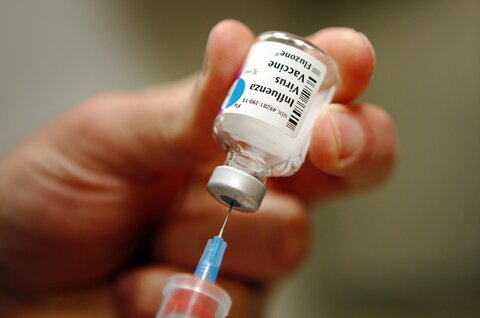Iran (IMNA) - Pfizer, which developed the vaccine with the German drugmaker BioNTech, released only sparse details from its clinical trial, based on the first formal review of the data by an outside panel of experts.
The company said that the analysis found that the vaccine was more than 90 percent effective in preventing the disease among trial volunteers who had no evidence of prior coronavirus infection. If the results hold up, that level of protection would put it on par with highly effective childhood vaccines for diseases such as measles. No serious safety concerns have been observed, the company said.
Pfizer plans to ask the Food and Drug Administration for emergency authorization of the two-dose vaccine later this month, after it has collected the recommended two months of safety data. By the end of the year it will have manufactured enough doses to immunize 15 million to 20 million people, company executives have said.
“This is a historical moment,” said Kathrin Jansen, a senior vice president and the head of vaccine research and development at Pfizer. “This was a devastating situation, a pandemic, and we have embarked on a path and a goal that nobody ever has achieved — to come up with a vaccine within a year.”
The news comes just days after Joseph R. Biden Jr. clinched a victory over President Trump in the presidential election. Mr. Trump had repeatedly hinted a vaccine would be ready before Election Day, Nov. 3. This fall, Pfizer’s chief executive, Dr. Albert Bourla, frequently claimed that the company could have some indication of whether the vaccine worked by October, something that did not come to pass.
Independent scientists have cautioned against hyping early results before long-term safety and efficacy data has been collected. And no one knows how long the vaccine’s protection might last. Still, the development makes Pfizer the first company to announce positive results from a late-stage vaccine trial, vaulting it to the front of a frenzied global race that began in January and has unfolded at record-breaking speed.
Eleven vaccines are in the late-stage trials, including four in the United States. Pfizer’s progress could bode well for Moderna’s vaccine, which uses similar technology. A Moderna spokesman said that it expected interim findings from its study this month.
Operation Warp Speed, the federal effort to rush a vaccine to market, has promised Pfizer $1.95 billion to deliver 100 million doses to the federal government, which will be given to Americans free of charge. But Dr. Jansen sought to distance the company from Operation Warp Speed and presidential politics, noting that the company — unlike the other vaccine front-runners — did not take any federal money to help pay for research and development.
“We were never part of the Warp Speed,” she said on Sunday. “We have never taken any money from the U.S. government, or from anyone.” On Monday, a spokeswoman for Pfizer clarified that the company is part of Operation Warp Speed as a supplier of a potential coronavirus vaccine.
Dr. Jansen said she learned of the results from the outside panel of experts shortly after 1 p.m. on Sunday, and that the timing was not influenced by the election. “We have always said that science is driving how we conduct ourselves — no politics,” she said.
The data released by Pfizer Monday was delivered in a news release, not a peer-reviewed medical journal. It is not conclusive evidence that the vaccine is safe and effective, and the initial finding of more than 90 percent efficacy could change as the trial goes on.
“We need to see the actual data, and we’re going to need longer-term results,” said Jesse Goodman, a professor of medicine and infectious diseases at Georgetown University. Still, he said, “it’s a testament to hard work and science that we’re getting results that are so good and so fast.”
Other scientists were stunned by the data so far.
“This is really a spectacular number,” said Akiko Iwasaki, an immunologist at Yale University. “I wasn’t expecting it to be this high. I was preparing myself for something like 55 percent.”
nytimes


Your Comment